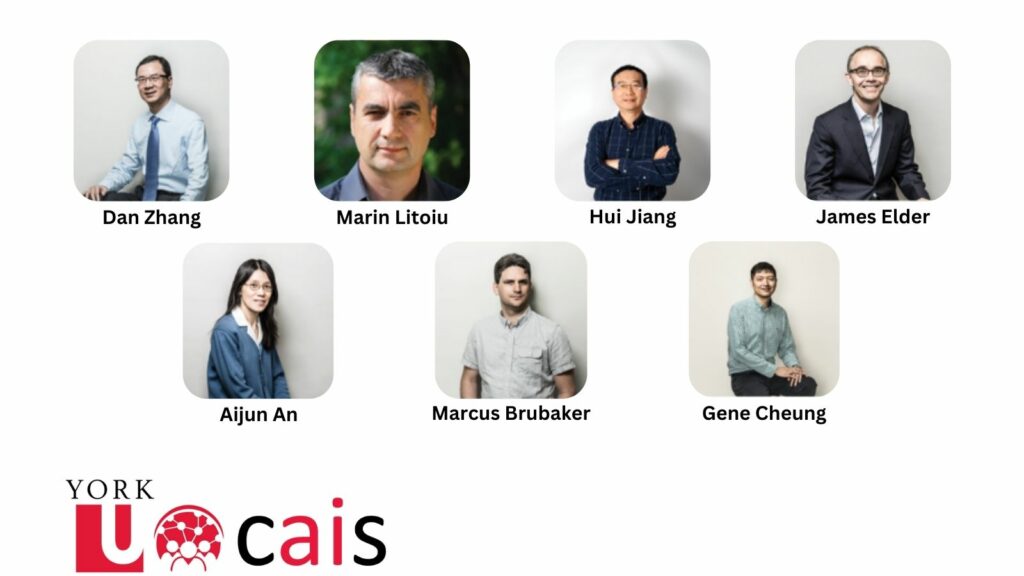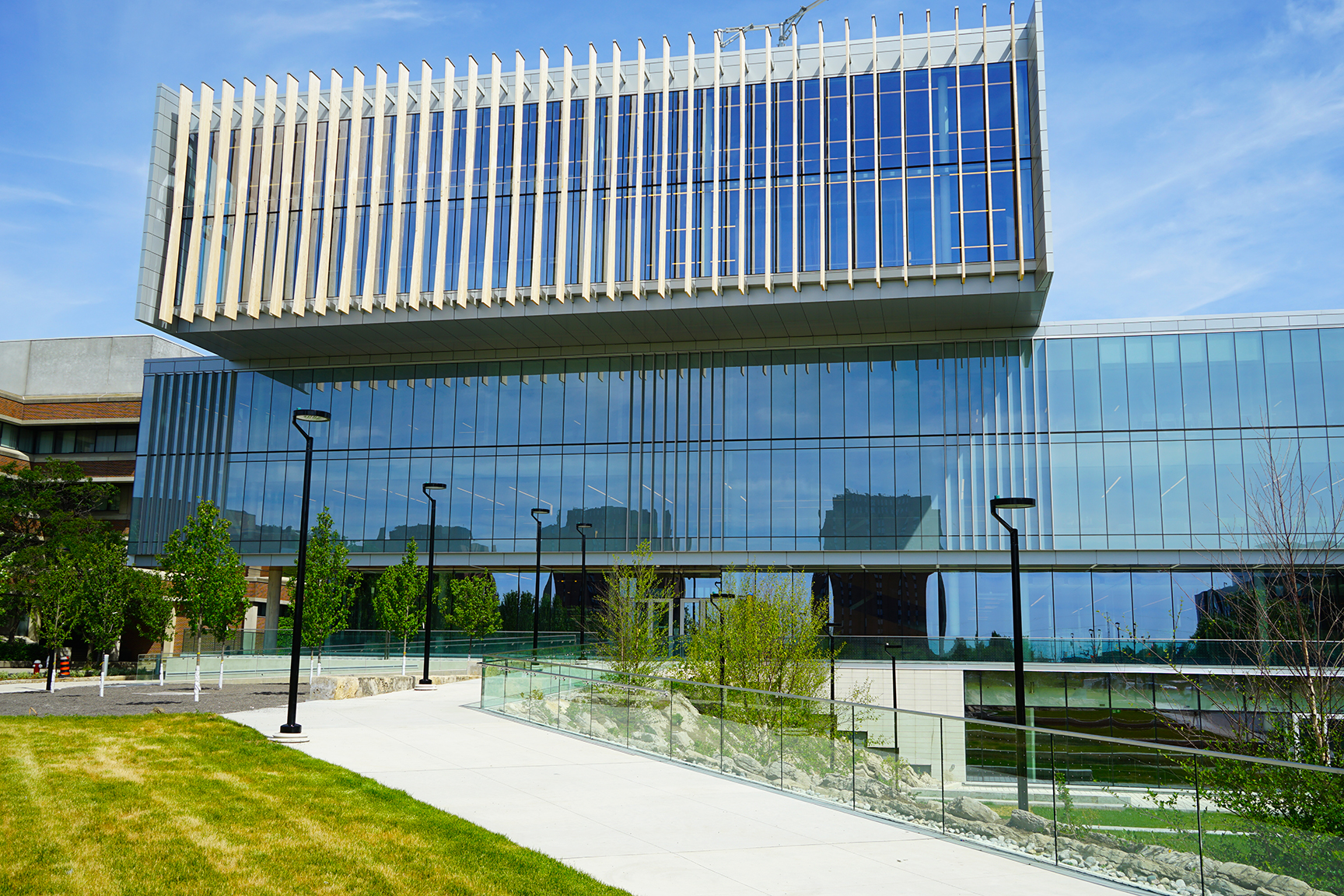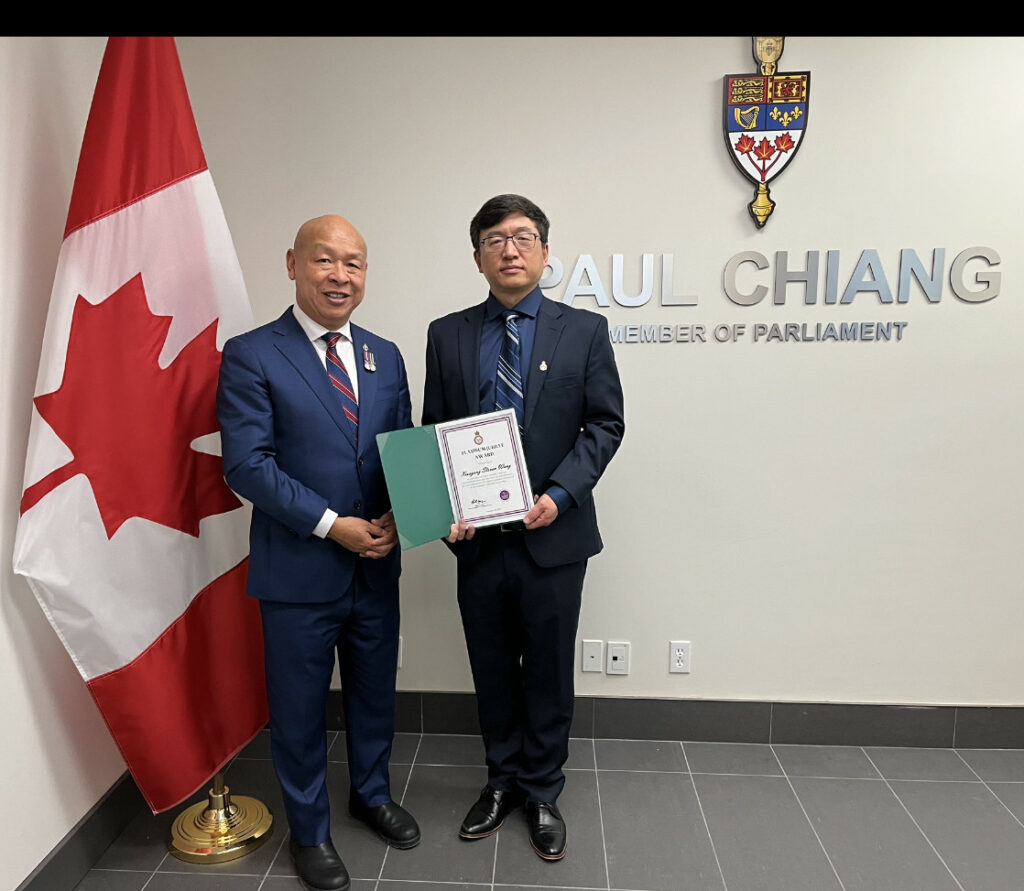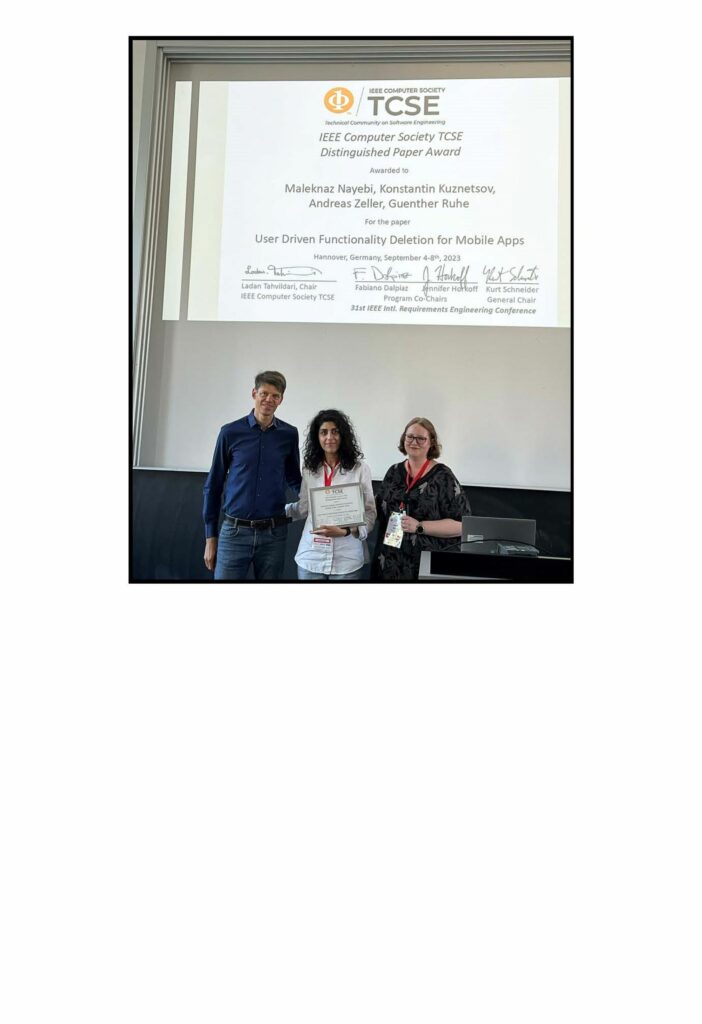In a joint statement, Professors Pina D’Agostino and James Elder, Co-Directors of the York University Centre for AI & Society (CAIS), announced the names of the Centre’s newly established inaugural Advisory Board
TORONTO, FEBRUARY 26, 2024-Professors D’Agostino and Elder expressed their gratitude to the members of the inaugural Advisory Board for the generous donation of their time and deep expertise to help guide CAIS research to new discoveries that will improve lives and lead to a healthier and just society.
“I am so excited that we have assembled a stellar inaugural Advisory Board as we launch CAIS,” says D’Agostino, “With their guidance, CAIS is certain to lead in tackling the AI challenges we now face, and for us to play a constructive role in help shaping the future of our society.”
“The members of the inaugural CAIS Advisory Board are leaders in Canada’s broad AI & Society community, with deep experience in the technological, entrepreneurial, legal and governance foundations of AI, as well as key application areas of health, mobility and sustainability,” says Elder. “CAIS is very fortunate to have their support.”
Members of the CAIS Inaugural Advisory Board: (listed alphabetically by last name):
Johanne Bélisle Innovation Policy Advisor, formerly at World Intellectual Property Organization, & Former CEO, Canadian Intellectual Property Office
Casey Chisick Partner and Chair, Intellectual Property and Entertainment, Media & Sports Law, Cassels Brock & Blackwell LLP
Sven Dickinson Vice President/Head Samsung AI Research Center & Professor, Department of Computer Science, University of Toronto
Konstantinos Georgaras Commissioner of Patents, Registrar of Trademarks and Chief Executive Officer of the Canadian Intellectual Property Office
Uma Gopinath Chief Information Officer, Metrolinx
Nadine Letson Head of Corporate, External and Legal Affairs, Microsoft Canada
Aaron Rezaei Chief Executive Officer at STIM Canada Inc & General Partner, Archangel Network of FUNDS
Allison Sekuler Sandra A Rotman Chair in Cognitive Neuroscience, Rotman Research Institute; President & Chief Scientist, Baycrest Academy for Research and Education; President & Chief Scientist, Centre for Aging + Brain Health Innovation; Professor, Psychology, University of Toronto, Professor Emeritus, Department of Psychology, Neuroscience & Behaviour, McMaster University
Altaf Stationwala President and CEO, Mackenzie Health
Elissa Strome Executive Director, Pan-Canadian AI Strategy, CIFAR
Graham Taylor Faculty Member & Canada CIFAR AI Chair, Vector Institute for AI; Academic Director, Next AI; Professor & Canada Research Chair, School of Engineering, University of Guelph
Julia Zhu Executive Vice President and Chief Digital & Innovation Officer, Alectra Utilities
CAIS unites researchers at York University who are collectively advancing the state of the art in the theory and practice of artificial intelligence (AI) systems, governance, and public policy, focusing on AI systems that address societal priorities in health care, smart cities and sustainability, and are fair, explainable, reliable and trusted.
For more information about the Centre, it’s members and upcoming conferences and seminars, visit the website https://www.yorku.ca/research/cais/
Stanford University lists the world’s top 2% researchers, recognizing 25 Lassonde faculty members, which includes 7 CAIS members.
Full story : READ HERE


Prof D'Agostino was also recently featured in the Law Times for her role in another important research initiative at @YorkUniversity! A "pioneering $ 318-million interdisciplinary research project called Connected Minds: Neural and Machine Systems for a Healthy, Just Society."
Check out this new piece in the Global Policy Journal by our co-Director and @osgoodenews Prof. Pina D'Agostino: "Who is the AI Owner? Hacking the Illusive AI Inventorship Challenge"
Watch the official launch of the The Centre for AI & Society, which took place at the 2022 "Bracing For Impact Conference: The Future of AI for Society"!
Dr. Pina D'Agostino Recognized as One of Canada's Top 25 Most Influential Lawyers
of Canada's Top 25 Most Influential Lawyers in addition to her Italian Immigration Story. A place on this list is a highly regarded accolade and reflects how the work of these members of the legal system has had an impact, whether in the courtroom, law school, law firm or business or at a policy level; Canadian Lawyer Mag stated that D'Agostino was making "an incredible impact in the lives of students and helping Canadian entrepreneurs."
Dr. James Elder - Human and Computer Vision
Dr. James Elder's research is an interdisciplinary approach to human and computer vision. His work on attentive sensing focuses on how the human visual system works, and creating an artificial visual system that has the properties of human vision.

The prestigious award and pin were presented by the MP Paul Chiang on February 28, 2023, to recognize Professor Wang’s significant contributions to the community. Specifically, Professor Wang has been working to assist the Mon Sheong Foundation, a non-profit organization that promotes Chinese culture and heritage. Among its many community-based ventures, the Mon Sheong Foundation operates several long-term care facilities in Ontario. Professor Wang has been working with the Foundation for the past three years to develop artificial intelligence (AI) solutions, such as robots and infrared cameras, to help combat the spread of Covid-19. This work is part of Professor Wang’s growing portfolio of projects focused on helping to improve care for seniors.
Below story published in YFile: Professor receives patent to improve AI machine learning - YFile (yorku.ca)
October 4, 2023.
Congratulations to CAIS member Professor Xiaogang (Steven Wang) on a US patent approval for an algorithm that will reduce the training time of artificial intelligence (AI) machine learning (ML),
The patent, titled “Parallel Residual Neural Network Architecture and System and Method for Training a Residual Neural Network,” was inspired by a 2018 paper titled “Decoupling the Layers in Residual Network.” Both were based on collaborations with Ricky Fok, a former postdoctoral Fellow student; Aijun An, a professor in the Department of Engineering & Computer Science; and Zana Rashidi, a former graduate research assistant who carried out some of the computing experiments.
The now-patented algorithm, approved this year, was a result of six months of research at York. It was submitted to the United States Patent and Trademark Office in 2019. The algorithm’s framework is based on mathematical arguments that helps significantly reduce the training time of machine learning, as it absorbs, processes and analyzes new information. It does so by using a mathematical formula to allow residual networks – responsible for the training of AI – to compute in parallel to each other, thereby enabling faster simultaneous learning.
Wang’s desire to accelerate machine learning’s abilities is driven, in part, by a specific area of AI applications. “I want to apply all the algorithms I develop to health care,” Wang says. “This is my dream and mission.”
Wang has especially focused on using AI to improve care for seniors and that work has previously earned him the Queen Elizabeth II Platinum Jubilee Award from the House of Commons for initiatives during COVID-19 to mitigate the spread of the virus in long-term care facilities.
Wang plans to use the patented algorithm in ongoing projects that aim to provide smart monitoring of biological signals for seniors. For example, it could be used in long-term care to continuously monitor electrocardiogram signals at night to register heartbeats that have stopped. To move towards that goal, Wang is also working on building an AI platform that will complement those ambitions, and expects it to be ready in several years.
He is deeply invested in the social impact of AI as a member of the York organized research unit Centre for Artificial Intelligence & Society, where researchers at York who are collectively advancing the state of the art in the theory and practice of AI systems, governance and public policy.
“I can use the machine learning to help the long-term care facilities improve the quality of care, but also help out with the struggles of the Canadian health-care system,” says Wang.
Congratulations to CAIS member, Assistant Professor Maleknaz Nayebi for receiving the IEEE TCSE distinguished research paper award!
(Professor Nayebi is featured in the centre in the photo below, along with the other recipients)

